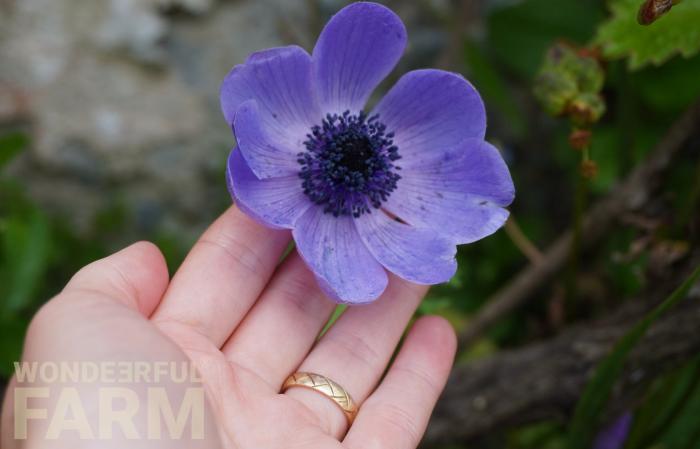Are Anemones Deer Resistant?
» Deer stories » Deer resistant plants » Are Anemones Deer Resistant?Plant type: bulbs
Deer resistant: yes
Our plant hardiness zone:
New Zealand: subtropical
U.S. Zone 10b
Show/Hide Contents
As the sun gently kisses the morning dew off the vibrant petals of my garden's anemones, a question often posed by fellow gardening enthusiasts and hobby gardeners alike crosses my mind: "Do deer eat anemones, are these charming flowers deer resistant?"
If you've nurtured your garden with love, watching those anemones bloom into a mesmerizing spectacle, you'd surely want to protect them from becoming a midnight snack for our four-legged friends. Well, you've stumbled upon a little haven of information because, as a professional deer farmer and a hobby gardener, I've got some firsthand insights to share with you on this topic.
Few things match the frustration of seeing your hard work gobbled up by hungry deer. But fear not, my green-thumbed reader, because today, we're diving deep precisely into the world of anemones and their appeal (or lack thereof) to deer.
But first, let's establish what kind of anemone are we talking about. One we've been able to test is a Blue Poppy, a De Caen variety of anemone also known as Anemone coronaria. These anemones are of the single type, displaying only one layer of petals.
Lovely violet-blue blossoms featuring a deep center. They begin blooming in early spring and continue to produce numerous stems throughout the season until spring's end. That's one of the things I loved about them, they pop up again and again, they can reward you with up to 6 months flowering!
Deer vs. Anemones: Are They On The Menu?
Anemones, with their delicate petals and diverse hues, are a sight to behold in any garden. But when it comes to deer, their preferences can often leave us guessing. Generally speaking, anemones are considered deer-resistant. This doesn't mean they're deer-proof, but they tend to be low on the menu for these herbivores. Deer, when given a choice, usually opt for more palatable options available in the wild or in our gardens.
Anemones De Caen and Our Deer
I have a special place in my heart for anemones; their elegance and simplicity bring a sense of peace and joy to my garden. Over the years, we've had numerous occasions where our resident deer, from Babushka to Double Trouble, roamed near these beauties yet chose to ignore them entirely. It's been a big relief to see our anemones flourish and multiply, unaffected by the deer that grace our property. This observation has only reinforced the notion that anemones do possess a level of deer resistance, making them a fantastic choice for gardeners concerned about deer damage. Of course, we can't vouch for Japanese or Wooden Anemones, as we haven't planted them, but researching the web on this matter gives reassurance that all kinds of these bulbous perennials are deer resistant + also rabbit resistant due to their somewhat bitter taste.
Protecting Your Anemones
While anemones have shown resilience against deer in my garden, it's essential to remember that deer behavior can be unpredictable and hungry deer can eat just about anything when normal food sources become scarce. Here are a few tips to further safeguard your anemones:
Fencing: Installing a deer fence around your garden is a surefire way to keep deer at bay.
Companion Planting: Surround your anemones with plants known to be less appealing to deer. This natural barrier can help deter deer from venturing too close.
Deer Repellents: There are various deer repellents on the market that can help protect your garden without harming the deer or your plants.
In addition to the above measures, maintaining diversity in your garden can help minimize the risk of deer damage. Incorporating a mix of plants known to be deer-resistant can create an uninviting environment for them, allowing your anemones and other favorites to thrive.
In conclusion, while no plant is entirely deer-proof, anemones seem to stand a good chance of surviving and thriving in a garden frequented by deer. My personal experiences have shown that these flowers can indeed be a safe bet for those looking to maintain a beautiful, deer-resistant garden. So, plant with confidence and let your anemones sway in the breeze, a testament to your gardening prowess and nature's harmony.
Last modified 10 February 2024 at 15:37
Published 08 February 2024
Add your comment
Plants alphabetically
 '
'

